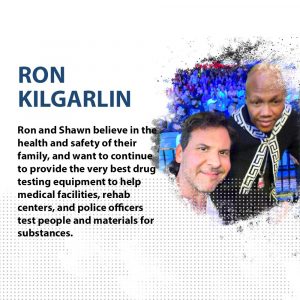What Are Some Signs of Substance Abuse?


Substance abuse is a serious issue that can lead to various problems. Whether it is alcohol or drugs, addiction can devastate a person’s life. There are several warning signs to look for that can help you determine if a loved one is abusing substances. Some of these signs include:
Changes in Mood
A sudden change in your mood is often the first sign of drug use. You may feel down, depressed, irritable, or angry. You may have a change in appetite, sleeping patterns, or weight. You may hide the drugs you have been using from others or steal or borrow money to buy them. You may also have scabs, bruises, and track marks on your body from injecting drugs.
If you are addicted to a drug, you will need more and more of it to feel the same effect. This is called developing tolerance. Other signs of addiction include bloodshot eyes, bad breath, shaking or tremors, a change in your physical appearance, looking in other people’s medicine cabinets, and mixing prescription drugs with alcohol. If you see these signs, talk to your friend or loved one about getting professional help.
Changes in Physical Appearance
Many drugs cause physical changes, including bloodshot eyes, bad breath, trembling and shaking, and weight loss or gain. Some also suppress appetites. A person might suddenly lack interest in personal hygiene or steal money to buy more drugs. They might also search other people’s medicine cabinets for drugs.
Stimulants like cocaine can lead to a shaky or paranoid appearance and rapid breathing. Snorting cocaine can damage the mucous membrane in the nose. Marijuana abuse can result in slurred speech and a sense of numbness. Many people use benzodiazepines (prescription medications such as Xanax and Valium) for anxiety or insomnia but can become addicted.
Family members and friends must watch out for these warning signs of substance abuse. Early detection of a drug problem can help prevent addiction and the harm that it can do to a person’s health, school, and work life.
Behavioral Changes
Drugs send massive dopamine surges through the brain, giving a false sense of pleasure and motivation. This can lead to a desire for risky behavior to get high. This includes illegal activities like stealing, borrowing, and selling things to obtain drugs. It can also have dangerous driving and sexual behavior.
Behavioral changes may also include secretive behavior and hiding drug paraphernalia. They may stay up for days and show signs of sleep deprivation like restlessness or shaking. They might start showing extreme mood swings and act aggressively or confrontationally. They might begin to ignore family and friends or avoid them altogether. They might even lie to them about their drug use. They might become irritable over minor things and become easily angered.
Changes in Social Relationships
People who abuse substances are more likely to have relationship and family problems. Their drug use may interfere with their ability to fulfill responsibilities at work or school. They may steal or borrow money to pay for drugs. Their friends and loved ones may notice a change in their behavior. They may be late or absent from social activities or be secretive about their drug use.
Stimulants like methylenedioxymethamphetamine, also known as MDMA or ecstasy, cocaine, and amphetamine-dextroamphetamine (Ritalin, Concerta), can cause erratic behavior and aggression. They can cause dilated pupils, slurred or rapid speech, and flushed skin.
Adolescents are often the first to recognize their peers are abusing alcohol or drugs. Adolescents may also avoid saying anything negative about their friends’ risky behaviors, which can send the unspoken message that those unhealthy habits are acceptable.
Changes in Employment
Drug use causes workplace impairment, leading to lost productivity, workman’s compensation claims, and reduced morale. It’s a problem in all industries, but it’s particularly prevalent in jobs that require concentration and attention to detail.
Employees with substance abuse problems are likelier to miss work and make excuses for their absence. They also are more likely to have accidents at the office.
Employers can spot drug abuse with physical and behavioral signs, although some are difficult to recognize because people using drugs tend to show multiple symptoms simultaneously. For example, a runny nose doesn’t necessarily indicate medicines but may tell alcohol. Some medications, such as opioids and benzodiazepines, cause sedative effects and drowsiness. Other drugs, such as cocaine, ecstasy, and methamphetamine, produce energy and increased coordination.
